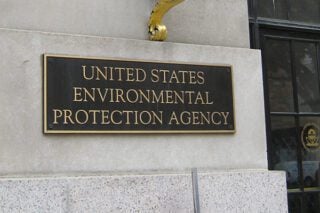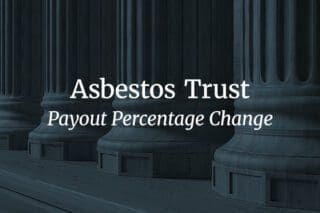Arp Schools have begun replacing their asbestos pipes and seeking another water source in the meantime. Water coolers and filters are currently being used to ensure students, faculty, and staff aren’t drinking contaminated water. The possibility of getting water from another rural water supply company is being explored. City sewer lines would still be utilized, but the legality and cost need to be decided.
“Construction is currently underway to replace roughly one mile of the city’s asbestos pipes,” said Arp Mayor Terry Lowery. “A completion date cannot be given on the project because the city is currently seeking funding to replace the remaining three miles of asbestos throughout Arp.”
In August, the amount of asbestos in Arp’s drinking water was found to be over the Environmental Protection Agency’s maximum contaminant level. At that time, the district began providing bottled water for drinking and filtered systems for cooking in its schools.
“We had started noticing something in the water, but we weren’t sure what it was,” said Mayor Lowery. “We had tested it and when it came back, it was asbestos.”
Arp ISD Superintendent Dwight Thomas had said, “It’s very discolored water, so obviously there’s impurities in it. Whether it’s safe, whether it’s not safe, I just don’t want our kids drinking it.”
Asbestos is often found in cement pipes and other building materials. It was first used in cement pipes in the U.S. from a mixture of Portland cement and asbestos fiber. The addition of asbestos increased the pipes’ durability and resistance to corrosion.
By 1953, the American Water Works Association had put standards into place governing the use of asbestos cement pipe in municipal water systems throughout the country.
Today, asbestos cement pipe remains a part of Arp’s and a number of other city’s water delivery systems. Those pipes are now starting to reach the end of their useful lifespan. The main risk from asbestos cement pipes comes from the possibility of ingesting water contaminated with loose fibers.
Arp isn’t the only city in Texas with an asbestos water concern. Last year, the city of Devine warned its residents of high levels of asbestos present in their water. For apparently close to a year, the levels had been too high.
The water samples taken had 14, 17, and 18 million fibers per liter (MFL). Due to the effects of asbestos exposure, the maximum amount permitted is 7 MFL. Another reading revealed 44.3 MFL.
From 1999 to 2015, nearly 2,200 Texas residents died from mesothelioma. You can view a full list of cities in Texas where asbestos use in the workplace is known to have occurred.





